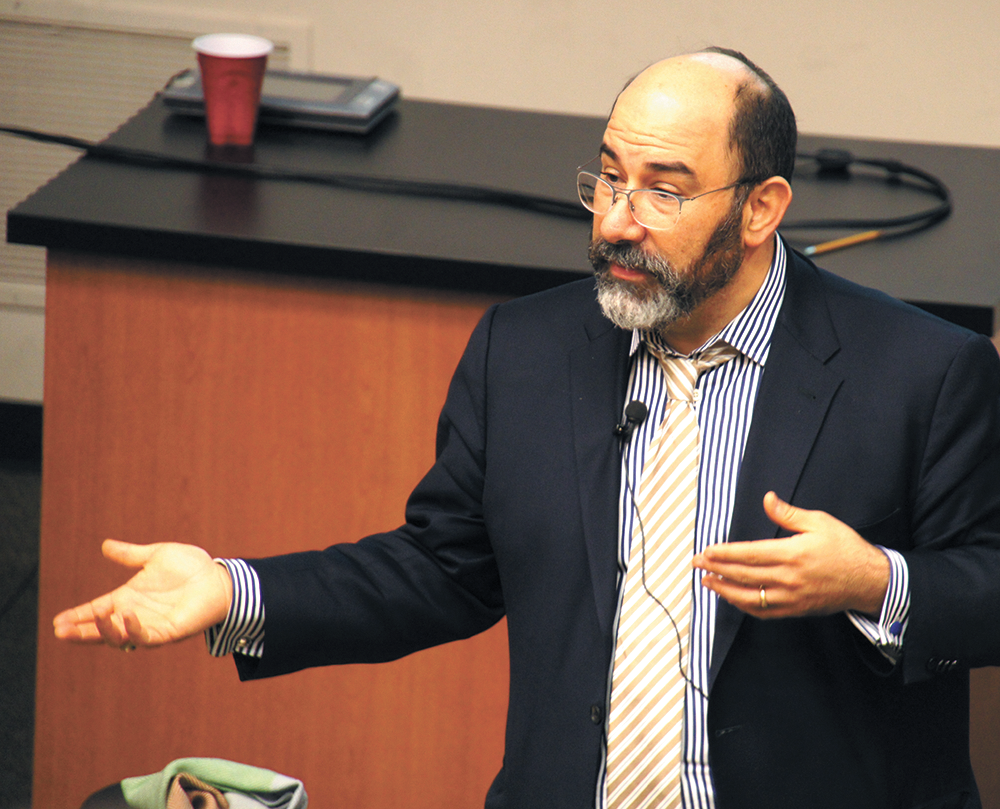Georgetown University faculty have called for increased action from the administration as they struggle to balance the full-time responsibilities of caring for children, conducting research and teaching courses.
Faculty members are citing caregiving concerns as a new semester starts, calling for further financial compensation and understanding from the university. After faculty members sent an October memo to the Georgetown administration detailing university failures to prioritize family care, the university expanded the GUCares dependent fund, an emergency fund that provides support ranging from $1,000 to $3,000 to full-time faculty and staff facing sudden financial loss, through June 2021. The university also convened the Family Care Working Group to tackle caregiving challenges among faculty and appointed a dependent care coordinator to help faculty navigate the university’s dependent care resources.

Despite these new policies, many faculty members feel the university has failed to acknowledge the caregiving crisis’ impact on research and productivity, according to Brian Hochman, associate professor of English and single parent to a kindergartner.
Hochman was forced to delay his book publication by a year and a half due to his child care responsibilities during the COVID-19 pandemic, he said in a Zoom interview with The Hoya.
“The pandemic, and its cascading consequences, has put parents into situations that can only be described as nightmarish. With schools going virtual basically from the beginning, I was faced with having to teach preschool and college at the same time with no help whatsoever,” Hochman said. “There were times when my daughter was Zooming on the computer and I would take the computer from her because her classroom would end, and I would run upstairs with that same computer, open my Zoom and then teach my class in the spring, going back and forth.”
The Family Care Working Group has already had several meetings and will be meeting regularly throughout the spring semester, according to Charles DeSantis, chair of the working group. The working group was created by the Office of the Chief Operating Officer and the Faculty Senate, a body of faculty members from all three university campuses that advises the university president on relevant issues.
“The charge of the committee is to develop recommendations to help improve the support provided by the University in the context of what has been accomplished to date and the budget,” DeSantis wrote in an email to The Hoya.
The working group has been focused on outlining specific goals and plans of action to help faculty and their families, according to Jennifer Whitney, associate professor of pharmacology and physiology at the Georgetown School of Medicine and a member of the working group.
“I think a lot of it is trying to figure out what the needs are, and I think more importantly is really, what can the university do to help families at this point?” Whitney said in a phone interview with The Hoya. “Ultimately this is a crisis of time. Parents don’t have the time to be doing what they need to do. Somehow we need to figure out how to give them back that time. So they’ve thrown out so many possible ideas about how to get that time back.”
In addition to the formation of the working group, the university appointed Elizabeth Andrew, who has worked in the early childhood education field for over eight years, to the position of dependent care resource coordinator in the fall, where she works to assist faculty and staff in accessing resources for dependent care support.
“I like to think that I can serve as a support system and advocate for families that need some extra help. This is a living role which is growing and evolving constantly depending on the needs of our Georgetown community,” Andrew wrote in an email to The Hoya. “I do my best to listen to each family and bring those thoughts to administration in an organized and clear way to think through what the University can continue to do to support our community members during this unprecedented time.”
The university responded to the crisis and implemented helpful policies, according to Hochman, who said he was able to use the expanded dependent care support fund this fall for paid care for his daughter. However, more action is needed to address the long-term effects of productivity losses during this time, especially for non-tenured and part-time faculty, he said.
“I can imagine five, 10 years down the road, faculty still feeling this,” Hochman said. “I think the best thing Georgetown can do is understand that these effects are not going to go away when the pandemic goes away.”
With the development of the Family Cares Working Group and Andrew’s appointment as dependent care resource coordinator, the university maintains its support of faculty and staff facing caregiving challenges.
“We are incredibly grateful for the commitment of our faculty, AAPs, staff, graduate assistants and adjuncts who have gone above and beyond in their support for our community during the COVID-19 pandemic,” a university spokesperson wrote in an email to The Hoya. “We remain committed to supporting our campus community through the COVID-19 pandemic and recognize the challenges faced by many in our community, including those who are responsible for serving as the caregivers of family members.”
However, faculty members will continue to face dependent care challenges until the university provides further support, according to Rebecca Riggins, an associate professor in the oncology department of the School of Medicine and the mother of a fifth-grader.
“I have failed to see empathy in general for the careful balancing act that simultaneously performing 2 full-time jobs — parent and academic — requires. Mitigating the long-term effects will require intervention on multiple levels, financial and cultural. Fixing this will take money and empathy,” Riggins wrote in an email to The Hoya. “Let’s put Cura Personalis into real practice for our faculty, especially those with dependent care responsibilities.”




















